The Best Leadership Links to Read Right Now
Today we dispatched the November edition of our Leadership That Works Newsletter, a curated digest of the best leadership links to read right now from around the web, sent at the end of each month. Topics covered in this month’s best leadership links to read right now include: ‘Megatrends’ of the future, getting through the last few weeks of the year, challenging the status quo, and more. As always, we’re sharing the content from our newsletter here in case you’re not subscribed to our mailing list. If you find these links enriching, you can sign up to receive our newsletter right here.
Gratitude Is a Practice
“Gratitude isn’t a feeling that materializes in response to your circumstances,” says this smart piece in The Atlantic. Rather, gratitude “is a practice,” and even if you’re not feeling particularly thankful this year, “you can—and should—engage in it,” not because it’s virtuous or because society says you should, but because it confers many measurable benefits to you and your wellbeing. Thankfulness has been shown “to raise human beings’ happiness,” to stimulate the part of the brain that commands our “rewards’ circuit,” to “make us more resilient,” to strengthen relationships, and even to bolster “health indicators.” Gratitude also enhances our altruism, making us “more generous with others, more patient, and less materialistic.” With all these benefits, if giving thanks were a drug, it would be a miracle cure and we’d be beating down pharmacy doors to get our hands on it. Luckily, we don’t have to consume thankfulness; we can cultivate it mindfully, and there are actionable steps in the full post for honing your gratitude practice here.
**For more on this, explore our post from the archives, “Lead with Gratitude.“
Challenge the Status Quo
“Covid-19 and the movement for racial justice have upended the normal ways of working,” writes Edith Cooper in this New York Times guest essay about the changing world and the still-long road ahead to achieve gender and racial parity on boards. The writer shares a recent experience with a “60-something white man” acquaintance who, feeling anxiety about shifting paradigms, worries he won’t get board appointments now, and expressed envy towards Cooper because she “must be in great demand—as a Black woman.” Cooper, who serves on the boards of Amazon and PepsiCo, points out that not only is the assumption that her race and gender are her most “relevant credentials” offensive as she is a seasoned senior executive with expertise that is valuable to boards, and the implicit belief that giving women and POC board jobs somehow means “lowering the bar” is also wrong and revealing of “deep-seated biases”— the hand-wringing over white men being passed over in favor of people with marginalized identities is also not grounded in reality: “The percentage of board members in Fortune 500 companies who were women was only 26.5 percent in 2020,” and “women of color made up only 5.7 percent of those boards.” Now, amidst radical workplace upheaval we “have a unique chance to reorient corporate America,” and to “build a more equal world,” but it requires challenging “the status quo,” and you can explore the author’s recommendations in the full post here.
Get Through the Last Few Weeks of the Year
“We’re now at the point in the calendar where end-of-year burnout takes hold,” as people struggle to manage end-of-year deadlines in concert with holiday, family, and pandemic stress, which creates “a perfect, energy-draining storm,” says this helpful charter piece on keeping employees engaged in the home stretch. These last few weeks of the year can be “a lot to slog through, let alone lead through,” but there are “concrete strategies for leading effectively,” as the new year approaches. There are many tactics you can put to work right away including the “Nobody speaks twice until everybody speaks once” rule for holding more inclusive meetings or the “If you had a magic wand . . .” open-ended question that solicits feedback about what team members would change if they could. Explore the full list of actionable tips and practices for getting through the last month of 2021 here.
**For more on this, explore our post from the archives: “A CEO Manifesto for Better Meetings.“
Satya Nadella on the 2 ‘Megatrends’ of the Future
In this interesting Harvard Business Review interview with Microsoft CEO Satya Nadella, he identifies two “megatrends” shaping the future of work. One is “hybrid work” which reveals workers’ desires for flexibility in “when, where, and how they work.” The other is “the great reshuffle,” which centers the “why” of work which has employees grappling with questions of meaning and re-thinking their careers. For leaders to be effective as these megatrends reconfigure their workplaces, they must exhibit “care,” which is the “real currency” in a virtual world when people no longer have “constant human connection.” The power of “care” extends to the “heart of design thinking” which is actually “empathy,” a leadership competency managers need in order to understand “the unmet and unarticulated needs of people,” which can in turn help them meet the “unarticulated needs of the marketplace.” He sums it up this way: “The source of all innovation is the most humane quality that we all have, which is empathy.” Explore all of Nadella’s insights in the full interview here.
**For more on leading with empathy, explore the incremental six-step Blueprint process which includes human-centric prompts for reflection and a leadership manifesto for leading with a “people first” mindset in a rapidly changing world.
What Leadership Lessons Have You Learned?
You Can’t Lead the Team If You’re Not Part of the Team
An analysis of over 140,000 anonymous feedback messages from employees all over the globe, covered in this fascinating Officevibe post, reveals what employees really want from their managers. The top desire expressed by employees? The want for their manager to “be a part of the team.” The data revealed that when leaders act “as an outsider from the team, and not a real member, it becomes a barrier to building a fully trusting and understanding relationship.” While employees overwhelmingly expressed a wish that managers would be more present with them, they didn’t necessarily want more “one-on-ones,” so much as they hoped “for more presence from the manager in the day-to-day life of the team,” and that their team leader would be “more involved in daily group conversations.” And, mere presence isn’t enough; when leaders do participate in team activities, they should listen, show genuine interest, and not give the impression that they’re squeezing it into their agenda because they’re “too busy.” To understand all the ways you can more fully integrate with your team to become a member, not an “outsider,” read the full post here.
**For more on teams, explore our post from the archives, “The Best Teams Have These 3 Things.”
Showing Up for Every Letter in LGBTQ+
“Although corporate America has stepped up its public support of LGBTQ+ rights, it still has a long road ahead to foster a truly inclusive environment for transgender employees,” write the authors of this McKinsey report on building a trans inclusive workplace. McKinsey researchers found rampant inequities in the United States including employment and pay gaps between transgender and cisgender adults as well as lack of institutional support: “More than half of transgender employees say they are not comfortable being out at work,” and “two-thirds remain in the closet in professional interactions outside their own companies.” Findings, while they reveal a great need to do better, also show benefits to increasing employment and wage equity for transgender people that “could boost annual consumer spending by $12 billion a year.” Although, “the economic upside of trans inclusion should be a footnote. Companies ought to improve the transgender experience at work because that’s the right thing to do.” Companies should take “concrete steps to tackle this specific inequity,” which can include more intentional recruiting practices, “trans-affirming benefits” packages, “trans-inclusive policies and programs,” and more. Explore the whole portfolio of findings and recommendations in the full report here.
Gratitude Is a Competitive Advantage
At the top of this newsletter we talked about the personal benefits of cultivating a gratitude practice. To close the newsletter, we’ll address the professional benefits of leading with gratitude as expressed in this timely Vistage post. Writing thank-you notes, or finding other sincere ways to express thanks to colleagues and clients, is not merely a courteous practice, it’s also a “powerful way to run a business,” and can give you a leg up with the competition. The top way that gratitude bestows a competitive advantage is that it helps build and retain a more “dedicated team.” As people are quitting their jobs in droves in what’s been dubbed “The Great Resignation,” you can reduce “voluntary turnover” by 22% with just “five moments of recognition per year.” Other advantages of expressing thankfulness as a leader include keeping employees “focused on what matters,” and improving “productivity.” Looking to reap the benefits of gratitude with your team? It’s essential to understand that it starts at the top and must be “an embedded part of a company’s culture.” Learn more in the full post here.
**For more on this, read about ConantLeadership Founder Doug Conant’s history of writing 30,000 thank-you notes as CEO of Campbell Soup Company here.
Insights & Resources from ConantLeadership
If you couldn’t attend this bi-annual FREE meeting of the top leadership minds and luminaries in the business space, no worries. We’ve included links to all the recordings below.
Links to Summit Session Recordings
Access the video recordings of Doug Conant in conversation with Jane Hyun, Dan Pink, Hubert Joly, Amy Edmondson, and The BLUEPRINT Power Panel.
Save the date for our spring 2022 BLUEPRINT Leadership Summit:
April 4-8 2022
Celebrating 10 Years of ConantLeadership |
Last month marked our ten year anniversary! In this post, we celebrated a decade of “Championing Leadership That Works” through resources, training, philanthropy, and more.
10 Powerful Ways to Give Thanks with Your Leadership
In this post from the ConantLeadership archives, ConantLeadership Founder & CEO Doug Conant gets at the “reason for the season” with ten leadership tips for making people feel valued.
October’s Leadership That Works Newsletter
In last month’s newsletter: ‘Tend-and-befriend,’ the six ‘C’s of purpose, how to push back at work, and more.
Level Up Your Leadership at the BLUEPRINT Boot Camp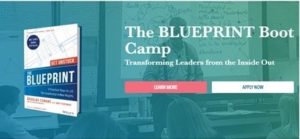
This engaging and immersive leadership development experience is centered around a structured 6-step process for reflection and learning that empowers you to lead like only you can.
Apply now: conantleadership.com/bootcamp
About the Author: Amy Federman is ConantLeadership’s Director of Content and Editor in Chief and co-author with Doug Conant of the WSJ bestseller, The Blueprint.
(Header photo by JACQUELINE BRANDWAYN on Unsplash)

“Doug Conant is remarkable—and so is this work.“
– Stephen M. R. Covey
Author of The Speed of Trust
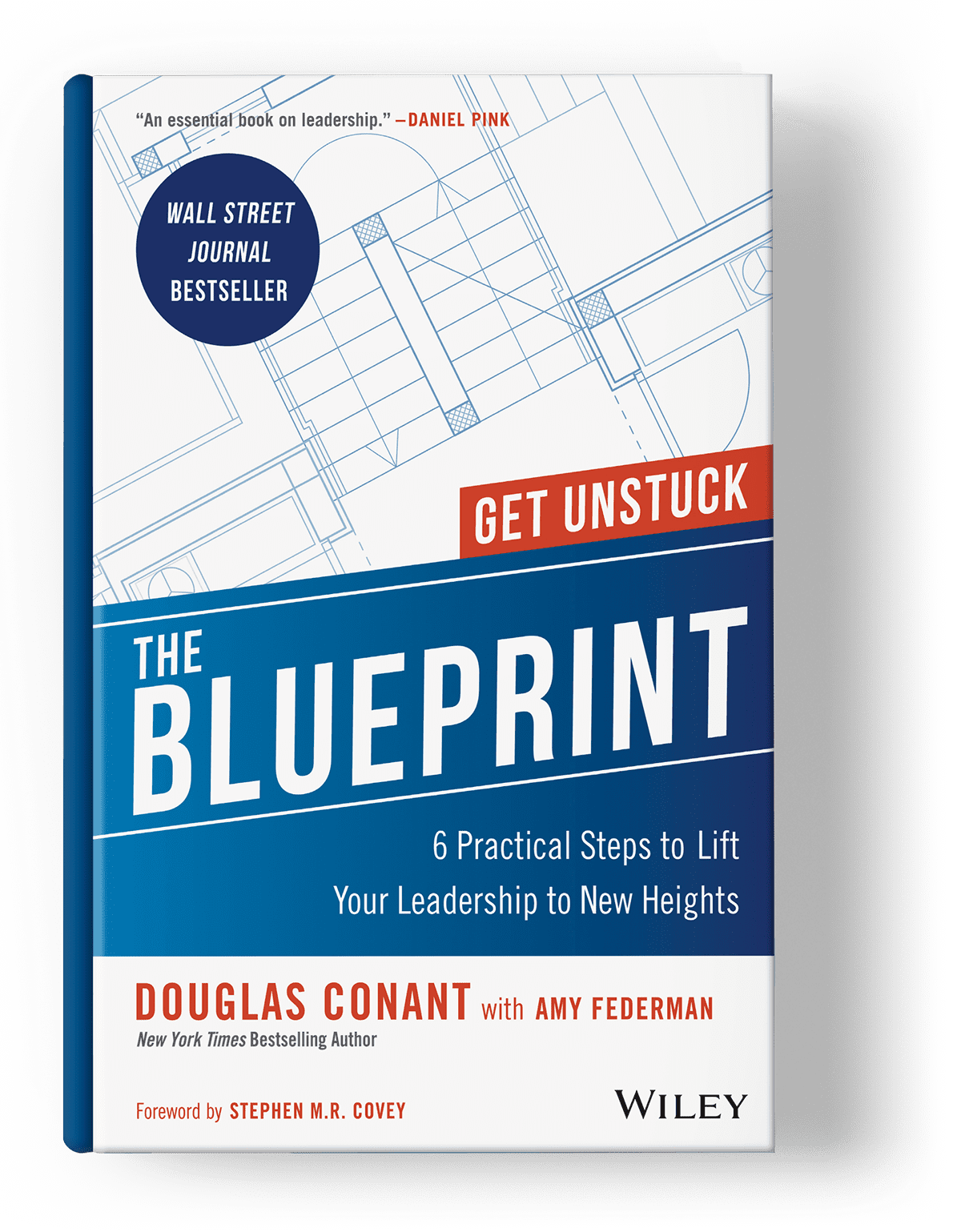
The Blueprint
6 Practical Steps to Lift Your Leadership to New Heights
By Douglas Conant with Amy Federman
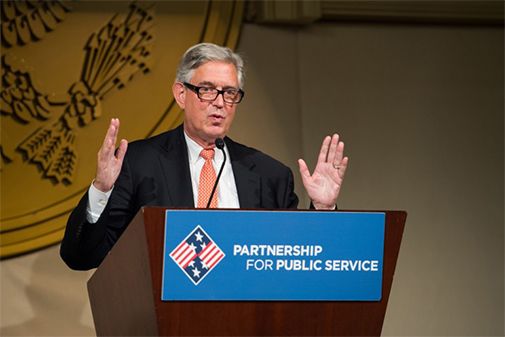
Have Doug Speak at Your Event
Doug works collaboratively with event organizers to customize his material for each audience.

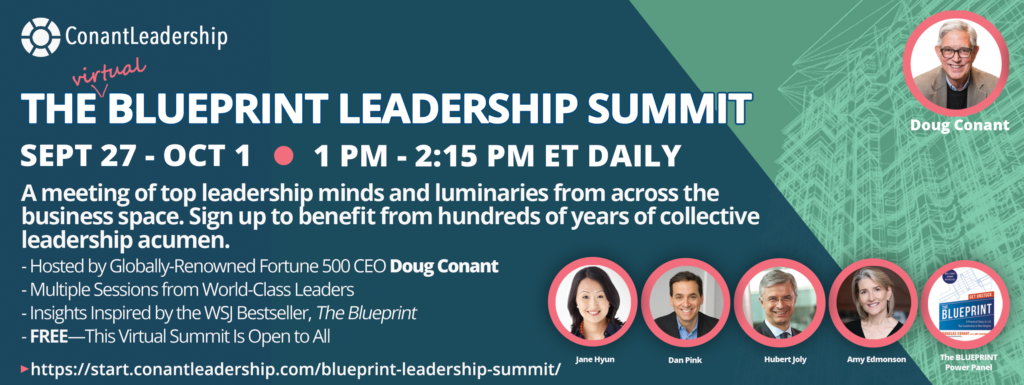
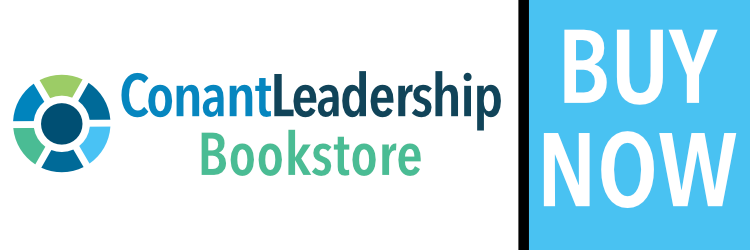

0 Comments